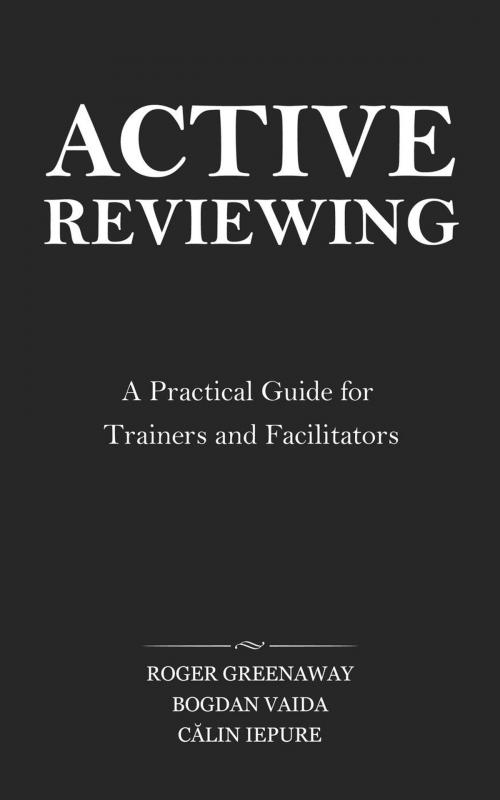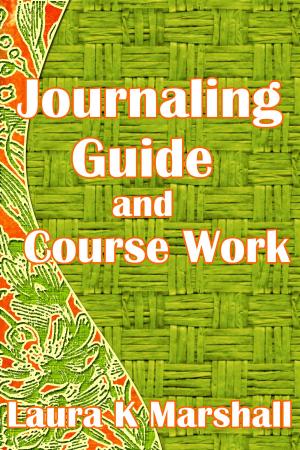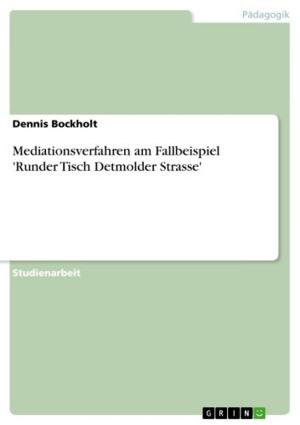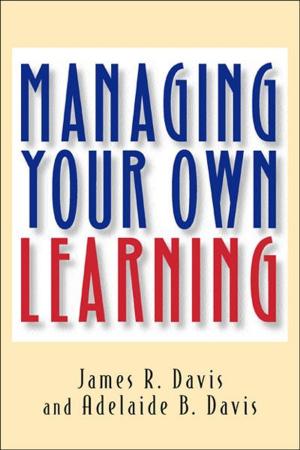Active Reviewing
Nonfiction, Reference & Language, Education & Teaching, Non-Formal Education, Educational Theory, Adult & Continuing Education| Author: | Roger Greenaway, Bogdan Vaida, Călin Iepure | ISBN: | 9781519941961 |
| Publisher: | Bogdan Vaida | Publication: | November 14, 2015 |
| Imprint: | Language: | English |
| Author: | Roger Greenaway, Bogdan Vaida, Călin Iepure |
| ISBN: | 9781519941961 |
| Publisher: | Bogdan Vaida |
| Publication: | November 14, 2015 |
| Imprint: | |
| Language: | English |
If you want to help people learn from activities, exercises or experiences, this book is for you. This book fills a gap; it is the gap between doing an activity and learning from it. Plenty of books describe activities that are good for icebreaking, for team-building, for project management or for cross-cultural understanding, etc. A few of these books do give advice about reviewing (or debriefing) the activities, and 90% of the times it reads: “Here are some questions you can ask ...”. How’s that for boring and/or limiting?
The result of such advice is that reviews are often dull and they dwell on what went wrong. When reading, they give off a feeling of discomfort. But why is that? Well, one of the reasons is because the same people speak up all the time. And that bores and might even annoy the rest of the participants. Thus, reviewing gets a bad name and people just want the review to finish as quickly as possible so that they can get on with the next activity.
This is a rare book for two reasons:
It is about reviewing (How many books have you come across on this subject?)
It is about reviewing actively.(Which makes it not just rare, but unique.)
With the help of this book, you can make reviews at least as engaging as the activities you are reviewing. No more discomfort. No more unwanted silences. No more superficial reviews. Just engaging and practical ways to help people learn from experience! How does that sound for a change?
If you want to help people learn from activities, exercises or experiences, this book is for you. This book fills a gap; it is the gap between doing an activity and learning from it. Plenty of books describe activities that are good for icebreaking, for team-building, for project management or for cross-cultural understanding, etc. A few of these books do give advice about reviewing (or debriefing) the activities, and 90% of the times it reads: “Here are some questions you can ask ...”. How’s that for boring and/or limiting?
The result of such advice is that reviews are often dull and they dwell on what went wrong. When reading, they give off a feeling of discomfort. But why is that? Well, one of the reasons is because the same people speak up all the time. And that bores and might even annoy the rest of the participants. Thus, reviewing gets a bad name and people just want the review to finish as quickly as possible so that they can get on with the next activity.
This is a rare book for two reasons:
It is about reviewing (How many books have you come across on this subject?)
It is about reviewing actively.(Which makes it not just rare, but unique.)
With the help of this book, you can make reviews at least as engaging as the activities you are reviewing. No more discomfort. No more unwanted silences. No more superficial reviews. Just engaging and practical ways to help people learn from experience! How does that sound for a change?















